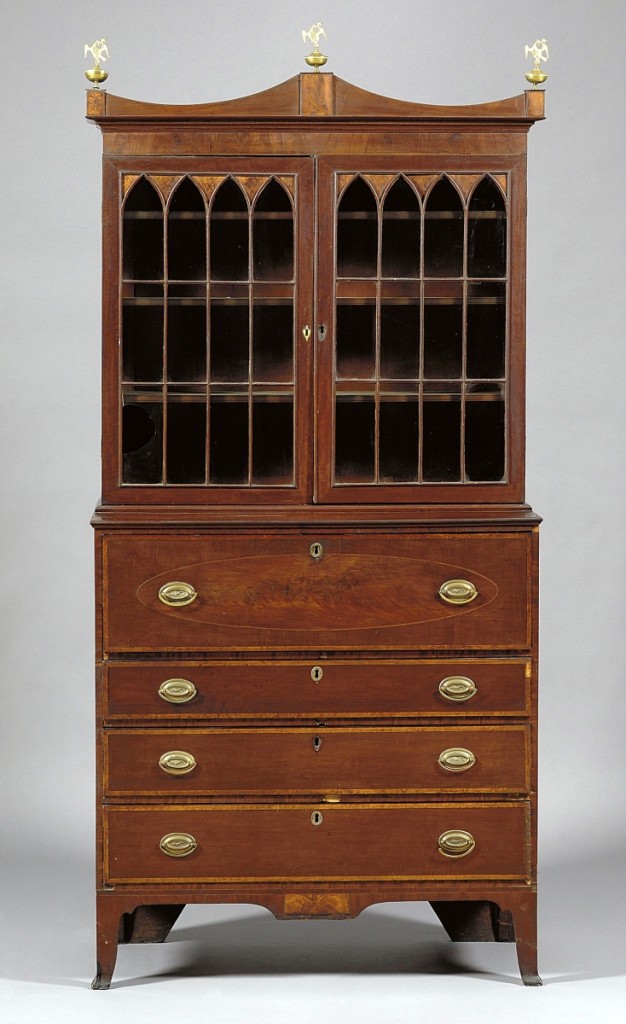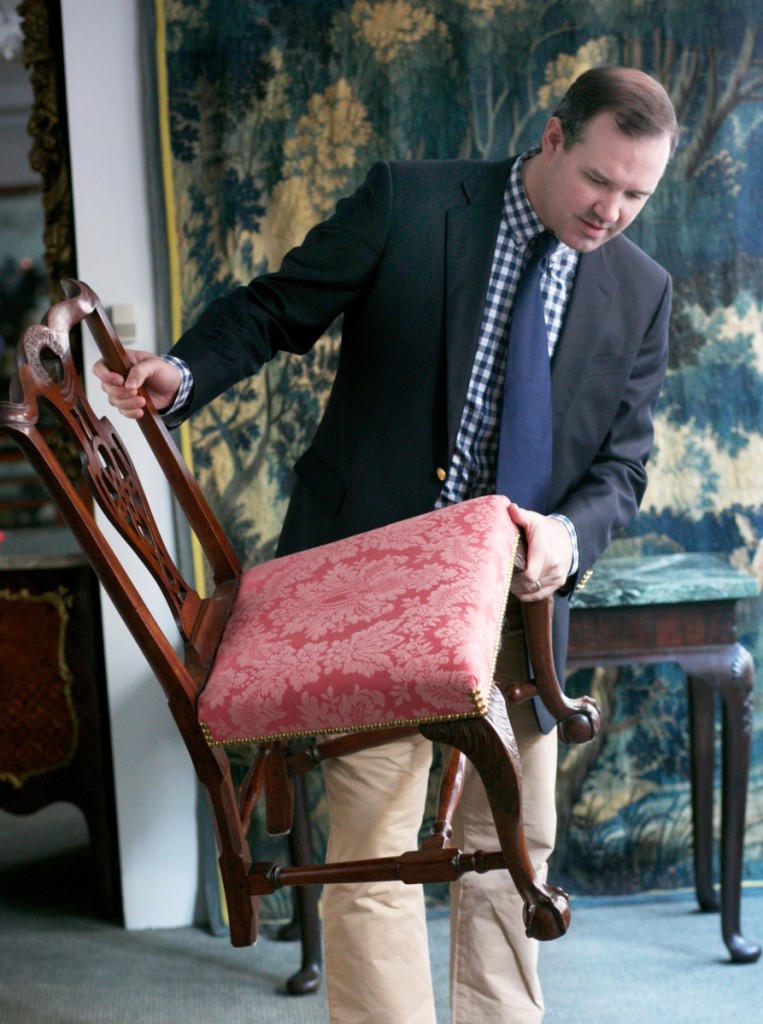Chris Barber is Skinner’s deputy director, American furniture and decorative arts. He has been with Skinner 13 years, after having been with the American paintings department at Christie’s for three years. He was originally hired at Skinner on a temporary basis to fill in for a woman on maternity leave, but everyone was satisfied with the situation, and he stayed on.
He is responsible for much of the research that goes into cataloging the American furniture and decorative arts offerings and works with both prospective sellers and buyers. He received his AB in the history of art and architecture from Harvard in 2001, after which he started at Christie’s. Barber met his wife, Jessica Lincoln, who also has an art history and fine arts degree, when she was an auction coordinator at Skinner’s Boston Gallery. They live with their two young children in an older home. The home is furnished, as Barber says, “with old stuff, but I don’t really consider myself a collector. We’ve bought things we like – some of it is Victorian, some is older and some not. Things we can live with and that will survive small children.”
Has the Harvard training has been useful?
Yes. At Harvard, we really learned how to look at things. That training works for paintings or any other type of objects. My job here exposes me to such a wide assortment of objects, that much of what I’ve learned has been what you might call on-the-job training. But the experience at Harvard is very useful.
You do a lot of the cataloging for the Americana sales. Were there some interesting discoveries?

Skinner sold this secretary bookcase in November 2009 that was signed Joseph Murphy. Just after the catalog went live, Skinner found out who Murphy made this piece for and amended its online listing. “To me, that’s what makes cataloging and the research that goes with it so exciting,” Barber says.
The story I like to tell concerns a secretary/bookcase that we sold in 2009. It shows how various parts of our business work together to everyone’s benefit. We cataloged it as probably originating on the northern New England seacoast. While cataloging it, we found a stamp “Joseph Murphy” in a place that it couldn’t be seen unless the top and bottom were separated. We could not find any reference to Murphy as a cabinetmaker, and since you never know if a stamp like that indicates ownership or maker, we just listed the name. A few days after the catalog came out, Amy Burch, a Winterthur fellow who had written her thesis on York County, Maine, cabinetmakers, told us about a workbook belonging to Joseph Murphy that she had found at the Portsmouth Athenaeum. It indicated that he had made a secretary bookcase for the Jewett family of South Berwick, Maine. The home belonged to the grandparents of writer Sarah Orne Jewett, and is now owned by Historic New England. They had a photograph of Sarah seated at the secretary. As it turned out, Historic New England bought the piece, which is now on display in the house where it belongs. With all the additional information, which we added to our online description of the secretary, a piece that we expected would sell for around $7,000 sold for around $45,000. To me, that’s what makes cataloging and the research that goes with it so exciting.
What do you do in your spare time?
There is not a lot of spare time these days. Raising two small children is a time-consuming task, as many know. My mother was an avid birdwatcher and we did that together when I was growing up. We still do it, but not as often as we used to. I really enjoy getting to antiques shows and other auctions, especially small country sales. You never know what will turn up or who you’ll meet. Since my wife and I share our interest in history, and things, she often goes with me. I also help at charity auctions when I can. Part of my job that I really enjoy is getting us [Skinner] in front of people who may have things to consign, or who may be interested in buying things.
Tell us a little about the online Americana sales.
The online sales are a way of reaching an audience that may not have experience with auctions. It’s an easy way for younger people to see things they otherwise might not see, and consider how those things might fit into their homes. The format also makes it easier for people to learn about periods and styles and the history that’s part of what we’re selling. The format is working for us, but I still love the competition at live auctions and the sometimes unpredictable results.
-Rick Russack





